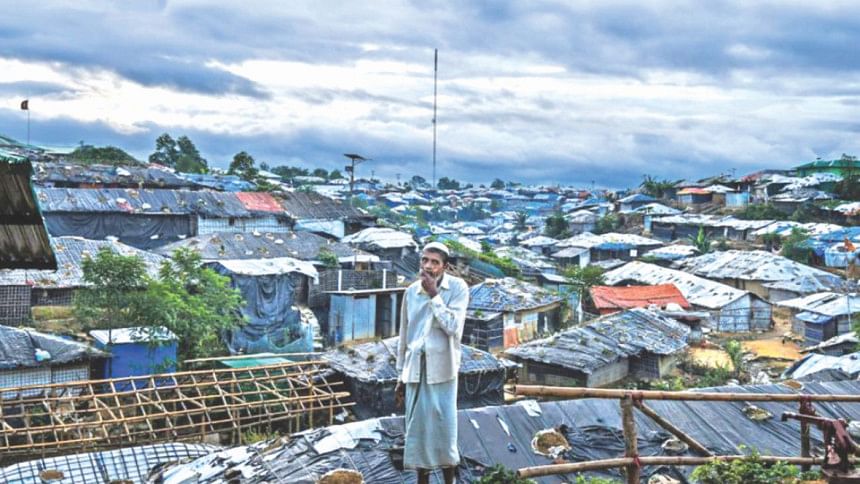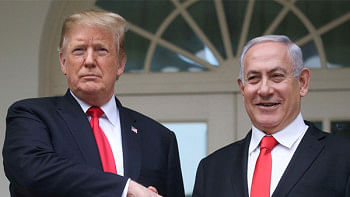Why we need a refugee assistance fund

It has been said that if refugees and internally displaced people were a nation, they would make up one of the biggest countries in the world—ranking among the top 30 countries in terms of population. Given this, and in the absence of states willing to take responsibility for them, how can costs associated with refugees be shared?
The 1951 Geneva Convention recognises that it can be overwhelming for a host-state to bear the cost and responsibility of refugees and calls for international cooperation. Although that cooperation has so far been voluntary, with the number of refugees skyrocketing, it is high time for a mandatory refugee assistance fund to be established.
Funds for refugee management are mostly raised through appeals to states, organisations or donors. Very little of it comes from any permanent sources. For example, the United Nations High Commission for Refugees receives only two percent of funds from the UN budget—with 98 percent of it coming from voluntary donations. Voluntary funds are subjected to high fluctuations and depend on many factors.
Media exposure is one such factor which plays a crucial role in determining the amount of funds that are given. Based on political sensitivity, intensity and expansion, some cases get better coverage and thus appeal more to people and donors than others. Once the coverage shifts, assistance for refugees often dry up. In 2018, UNHCR was able to secure only one-third of the required USD 5.6 billion for the world's largest refugee crisis taking place in Syria, which was a gradual decline from the three-fourth that was available in 2013. On the other hand, cases that get less coverage fail to even receive that.
Cynical as it may appear, voluntary assistance is heavily influenced by state interests. A state's image of offering humanitarian assistance is crucial for it to be accepted into the international community; and many would argue humanitarianism sells well. This means that the motive is often to "wisely" fund crises, to improve the image of a state on the international arena.
In addition to these, the influence of states that comes with voluntary funds often complicate operations on the ground. Host-states and actors dealing with refugees are disturbingly familiar with donors using their contributions to change agreements however inconvenient it may be. Consequently, such restraints on host-states and actors force them to compromise on durable and quality solutions.
At present, the amount of global refugee funds available are falling tremendously short of what is needed. This year, UNHCR could manage only 45 percent of the USD 8.2 billion it required. Because of donor preferences, making distribution equitable is also becoming difficult. Countries like Afghanistan, Congo, Somalia, South Sudan and Syria have been the worst affected by this deficiency.
To accommodate the needs of the ever-increasing number of refugees, host-states now require more economic support—stable, generous, and less politically restrained. Although this need for funds remains constant, no policy has been developed yet for equitable cost and "burden" sharing among states. Whereas host-states are bound by a legal obligation to protect refugees, third countries can still bypass any responsibility. In the absence of stable and predictable support, states sporadically fund crises; which has its own perils. While some basic needs are met with these funds, implementation of lasting solutions remains incomplete and inefficient. Imposing the entire cost of providing for refugee on one or a few countries in the long run can create economic and political instability in regions—especially when developing countries host 85 percent of all displaced people in the world.
In short, funding as it is currently given, aims to meet short-term needs but fails to provide permanent and durable solutions. This is where the case for a mandatory refugee assistance fund comes in. Countries can be made, for example, to set aside a certain percentage of their Gross Domestic Product for the refugee assistance fund. Setting a particular percentage that is fair to all is a challenging task and requires further research. Implementing and sustaining it can also be difficult; although not impossible. These challenges, however, should not prevent us from forming a consistent financing mechanism.
But at the end of the day, ensuring a consistent flow of funds is just a stepping stone towards easing the agonies of refugees. Funds really cannot do much when identity and existence are at stake. Which is why, permanent solutions lie in the acceptance and safe living conditions of refugees in their home countries.
Erina Mahmud is Research Associate at BRAC Institute of Governance and Development (BIGD).





Comments